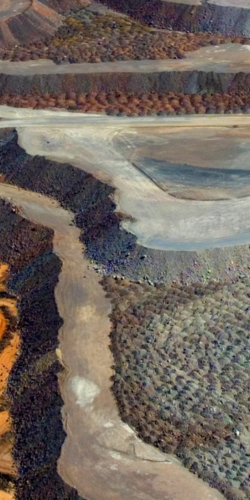Deep Sea Mining: A New Challenge for Politicians, Engineers and Environmental Scientists to Find the Best Solutions
As of 2020, only 19% of the worlds ocean floors have been mapped. This number is set to quickly expand. Nations all over the globe are beginning to realise the untapped potential of our seabeds and some countries are making strong moves to make claims to this.
As it turns out, pirates of the past were looking in all the wrong places for the ultimate troves of treasure. Our sea floors hold huge deposits of valuable minerals such as cobalt, nickel, zinc, silver, gold and phosphorous. These deposits have built up over thousands of years, covering areas of the ocean as large as 4.5 million square kilometres.
Since the 1960s, it has been international law that resources found in ‘the high seas’ or ‘international waters’, didn’t necessary belong to one nation. They were known as the ‘common heritage of mankind’. This law worked just fine in the 1960s, as they didn’t have extraordinarily high tech submarines with mechanical arms, back then. In 2020, it’s a very different story. Nations are beginning to contest which areas they should have claim to. Famously, in 2015 Russia planted a flag over 200 feet under water, in the seabed of the north pole.
The United Nations Convention for the Law of the Sea (UNCLOS) has been tasked with the challenge of deliberating with these countries. Their role is to process applications from nations. The applications often put forward commercial mining contractors to begin exploration on the nations behalf. Those who have submitted exploration applications include: Russia, South Korea, China, France, Germany, the UK, India, Poland, Brazil, Singapore, Tonga, Nauru and the Cook Islands. The excitement to get involved has reached a truly global scale.
At the crux of the aim of these applications and eventual exploration, is one question: can we perform deep sea mining without irreparably damaging the surrounding ecosystems?
Ultimately, deep sea mining is still banned internationally. This is mainly due to the fact that we haven’t been able to come up with a clear answer to the question above.
It is the role of mining engineers to work in collaboration with marine and environmental scientists to find resolutions. The UNCLOS are not willing to put independent profit (either of nations or of commercial companies) above environmental impact. It will require extreme innovation in engineering and mining technology, and thorough scientific investigation to achieve this.
We believe that the new generation of the mining, technology and engineering workforce is up to the challenge. Their respect for the environmental future of our world, means that collaborations with scientific entities can be very fruitful.
Ultimately, the sea floor has a lot of exciting things to offer. There could be answers down there, to a lot of questions we have in regards to biotech and medical research. We need highly talented individuals, in the right place at the right time to find them.
Covering two thirds of the Earth’s surface, it is imperative to our survival that we uphold the natural habitat and ensure that full protection is provided to one of our most sacred resources for oxygen production, climate regulation and food supply .
Finding the perfect fit for talented individuals is exactly what we do at Titan Recruitment. We stay on top of developments in your industry, so that you never miss out on a great opportunity.
To learn more about how Titan Recruitment could help you get involved in exciting projects, such as deep sea mining solutions, go to our Candidate Resources webpage.

.png)
.png)
.png)
.jpg)
.jpg)
.jpg)
.jpg)
.jpg)
.jpg)

.jpg)

%20(Billboard%20Web%20Ad)%20(Website)%20(2000%20x%20650%20px)%20(2).jpg)
%20(Billboard%20Web%20Ad)%20(Website)%20(2000%20x%20650%20px).jpg)
%20(Billboard%20Web%20Ad)%20(Website).jpg)
%20(Billboard%20Web%20Ad)%20(Website)%20(1).jpg)
%20(Billboard%20Web%20Ad)%20(5).jpg)
%20(Billboard%20Web%20Ad)%20(4).jpg)
%20(Billboard%20Web%20Ad)%20(5).png)
%20(Billboard%20Web%20Ad)%20(2000%20x%201000%20px).jpg)